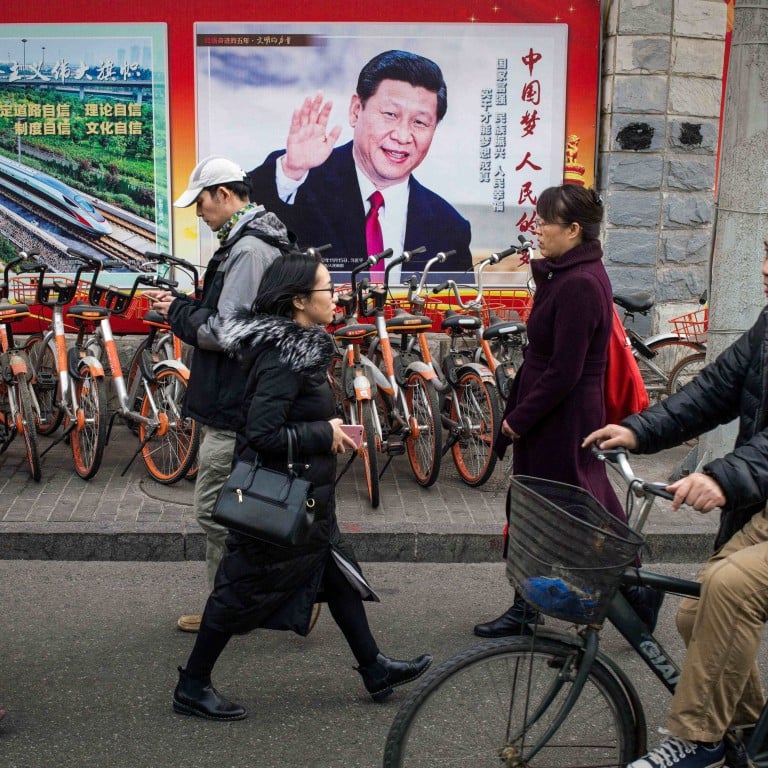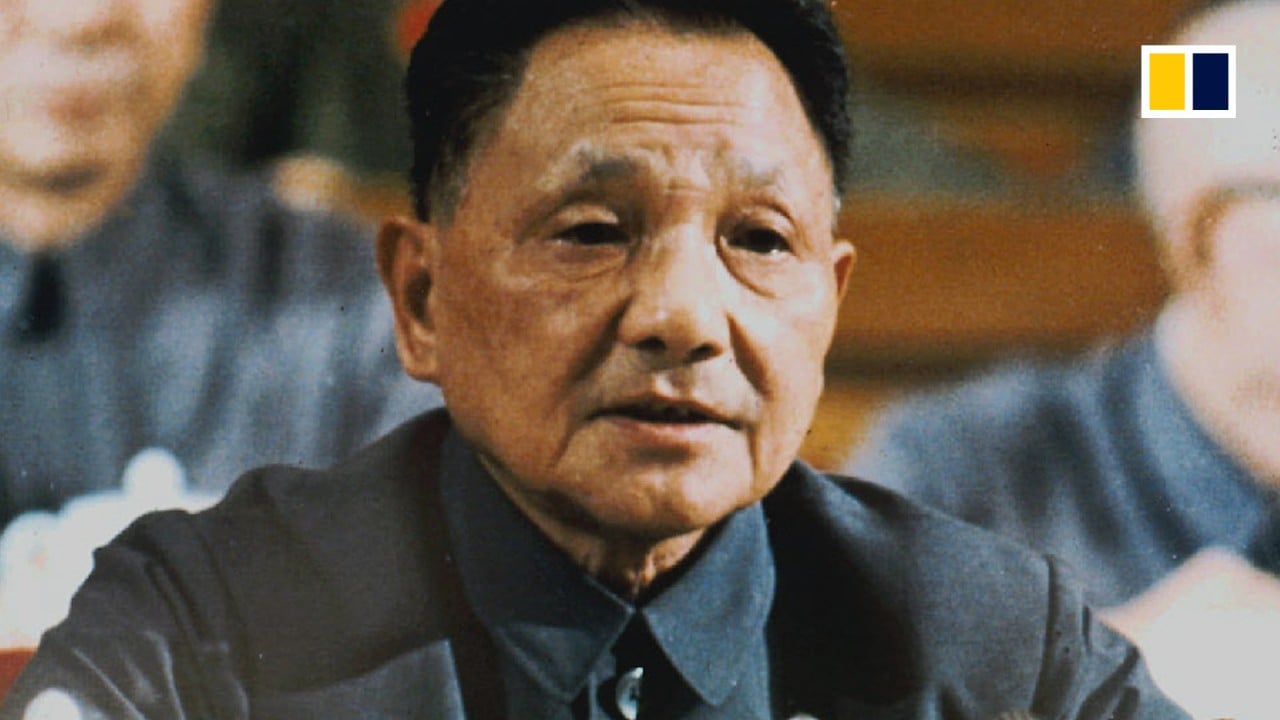
China’s would-be powerhouse Hunan wants officials to ‘emancipate their minds’
- ‘Lying flat’ is out and a drive to effectively revive the province’s economy is in, with campaign aimed at Communist Party cadres of all levels
- The campaign’s slogan was part of the party’s 1978 move to reverse Mao Zedong’s doctrines but is expected to have ‘limited’ implications
According to a notice made public on Sunday, provincial cadres at all levels are taking part in the campaign, which started in early February and will continue until the end of March.
Deng Xiaoping, who took over as leader in December 1978, made “emancipate the mind” his signature slogan as he paved the way for more than 40 years of reform and opening up.
Xi highlights importance of innovation in ‘Chinese-style modernisation’
Later Chinese leaders also used the slogan to urge the country to reflect on the lessons of Mao’s governance, especially during the Cultural Revolution – a decade of political and social upheaval that almost paralysed the national economy, and only ended after his death.
The latest “emancipating the mind” campaign is fundamentally different from the 1970s and 1980s, according to Chen Daoyin, a political commentator and former professor at Shanghai University of Political Science and Law.
“The biggest difference is their political orientations: the emancipation of the mind movement by Deng Xiaoping was to break the 10-year ideological imprisonment of the Cultural Revolution,” Chen said.
“Now in Hunan, it basically aims to strengthen Xi’s Thought and better serve Xi’s goals.”
Chen noted that the Hunan campaign adopted only the first part of Deng’s three-part proposition – “emancipate the mind, seek truth from facts, unite and look forward”.
As such, the campaign would not make a major difference because all discussions were confined within existing policy priorities, without seeking more fundamental breakthroughs, he said.
The Hunan notice placed strong emphasis on effectively reviving the economy, as well as paying homage to Xi’s teachings.
The discussions, taking place throughout the province, address problems with local cadres, including “lack of confidence in development” and “insufficient spirit of responsibility”.
At the same time, the campaign aimed to fundamentally reverse the “addiction” that leads to many officials simply relying on GDP growth for evaluations, the notice said.
Through the discussions, problems such as raising loans regardless of risks, investing blindly on projects, cheating on data, and “lying flat” to evade making mistakes should be resolved, it said.
What is ‘lying flat’, and why are Chinese officials standing up to it?
Xie Maosong, a senior researcher at the National Institute of Strategic Studies at Tsinghua University, said Hunan’s campaign was “a tactical attempt” to re-energise China’s massive bureaucracy.
Many officials have been accused of “lying flat” – the phenomenon commonly known in the West as “goblin mode”, which describes workers who put in just enough effort to keep their jobs and no more.
“After a decade of anti-corruption and disciplinary campaigns, many officials are in risk-aversion mode,” Xie said.
They were unwilling to take responsibility, push development initiatives or incentivise private sector growth “as they are afraid of making mistakes or facing supervision checks”.
“It seems that Hunan is trying to trailblaze a way to give its officials more freedom to act and more tolerance of their probable mistakes,” he said.
How Hunan’s African trade hub could help province catch up with China’s coast
China’s economy is facing multiple challenges, including a prolonged property market downturn, a local government debt crisis, and weak demand, as well as heightened geopolitical tensions.
The International Monetary Fund expects the Chinese economy to grow by 4.6 per cent this year, before slowing to 4 per cent in 2025, despite last year’s higher than expected growth of 5.2 per cent.
Hunan – which has ambitions to become the most “important advanced manufacturing highlands of the country” – achieved 5 trillion yuan (US$702 billion) in economic volume last year at a GDP growth rate of 4.6 per cent.
Bumper US$3 billion trade boost in Hunan bid to become China-Africa hub
The province – which has set a growth target of around 6 per cent for this year – is at a “critical stage of comprehensively deepening reform and opening up and promoting high-quality development”, according to the notice.
“More than at any time in history, Hunan needs to break the ice with ideas to lead reform breakthroughs.”
According to the notice, discussions should abide by the guidance of the party’s Central Committee and Xi, as general secretary, and focus on removing obstacles that hinder development, as well as other issues to “prevent and resolve various major risks”.
‘Have courage’: Xi stresses action, compliance in China’s economic policymaking
The notice also called on the province’s cadres to create a better business environment for private enterprises, and to help them solve funding and payment delays, as well as other difficulties.
The notice said the campaign was taking in all levels of the party, starting with the grass-roots members and spreading to county, city and provincial levels of the party’s organs, as well as companies and schools.
At the upper echelons, Hunan’s senior provincial officials would hold discussion panels and make inspection tours, it said.
‘New productive forces’: empty rhetoric, or engine for China’s future growth?
Alfred Wu, an associate professor with the National University of Singapore’s Lee Kuan Yew School of Public Policy, said that under Deng the slogan “emancipate the mind” was about relaxing socialist thought and adopting international norms.
But now, he said, it meant that officials would try every possible avenue to deliver the high-quality growth Xi wanted.
According to Wu, the specific mention of inflated growth numbers and a “lying flat” attitude among officials in the announcement could be a signal from Hunan party boss Shen Xiaoming.
Wu said Shen could be signalling that he had the political will to address these stumbling blocks, but also that he wanted the province’s officials to come up with workable ideas.



